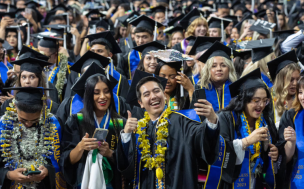Once you’ve made the decision to apply to business school, the array of options open to you can be overwhelming. But there are some organizations that specialize in matching candidates with business schools, sometimes with surprising results.
Access MBA has been organizing one-to-one meetings between qualified candidates and b-school admissions officers around the world since 2005. We asked Access MBA’s Event and Communications Director Carolyn Gonglefski how candidates are actually matched with schools.
First, says Gonglefski, you fill out a comprehensive registration form n which you give personal and professional information, as well as details of the business schools and programs you’re interested in.
Access MBA’s candidate managers, who are based in Sofia, Bulgaria, process the registrants. First they determine if a candidate meets the minimum requirements for the event, which are: at least three years of professional experience and an undergraduate degree.
If you have less than three years of work experience, or you’re still studying for your undergraduate degree, you can attend Access MBA’s workshops on GMAT preparation and the application process, but you won’t be invited to meet the schools one-to-one.
Next the candidate managers look at your preferences: where you want to study, your preferred program format (full-time, part-time, distance learning), when you want to apply, your budget, years of professional experience, and what kind of schools you’re interested in.
The candidate managers have a similar list of preferences from each participating school: schools may only be interested in a candidate with a minimum budget level or years of work experience, or only those applying within the next year.
The challenge is to match you with the schools among the 20 or so at each event that you are well-qualified to apply to. After the candidate managers have sifted registrants according to their preferences, the business schools are provided with a shortlist of candidates who meet their requirements, and it’s mandatory that they review it.
If a school wants to meet you, you’ll get a call from Sofia asking you to attend the event in your city. If you’re a particularly strong candidate, sought after by many schools, or if the exact schools you’re applying to aren’t participating, the Access MBA team may suggest additional or alternative schools for you to meet.
For intance, if you’ve applied to Wharton, LBS and IMD, the candidate managers may suggest another good school that’s less expensive.
Either way you’ll get clear instructions on which schools you’re going to meet (as long as you want to, of course) and at what time.
The advantage of this rigorous matching process is that when you finally meet the b-school admission officers one-to-one and at the workshops, you know that they have something interesting to offer you and that you have a good chance of getting in. “We don’t want crowds,” says Gonglefski, “The events are selective… it’s a tailor-made service.”
Candidates generally fall into one of two groups, she adds: "First step” candidates who know what an MBA is and why they’re interested, but don’t know about different program types and what they should cost, and “Second steppers” who are much more knowledgeable, and have already done their research.
“In certain markets there are many more first steppers,” says Gonglefski. “In markets like Cairo and Athens they’re culturally last-minute decision-makers and they haven’t done much research.
“In New York, London, Paris and Zurich they’re a lot more focused.”
The Access MBA Tour will be in 22 cities across Europe, the Middle East and Latin America between September and November. For more details, see their events page.
RECAPTHA :
00
62
b7
54







